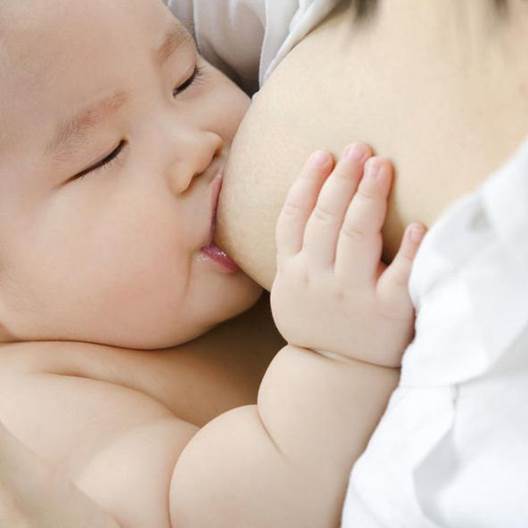Planning to breastfeed? Here are our
top tips, facts (and myth busters) to help make your experience happy and
trouble-free
Your baby at 9 months
Track your baby’s progress
Size: Your
baby can pick up about 200 grams a week. A full term baby can weigh anywhere
between 2.7kgs and 4kgs.
Progress: By
37 weeks your baby is considered full term. He is busy practicing for life on
the outside: breathing amniotic fluid, sucking on his thumb and even blinking.
Breastfeeding myths busted
Myth: mom’s milk becomes less nutritious
after the first year.
Fact: Mom’s
milk is nutritious way beyond the first year. At some point your little one
will need nutrition from other sources, but your milk remains a valuable contribution
to his diet.

Mom’s
milk is nutritious way beyond the first year
Myth: after several months the
immunities in moms milk decline.
Fact: As long as feeding continues,
immunity stays the same and even increases as baby approaches weaning. Studies
reveal that breastfed children have fewer illnesses than formula-fed babies
have.
Myth: prolonged breastfeeding can make a
child excessively dependent and cause psychological problems.
Fact: Studies show that children who
breastfeed past a year have remarkable social integration qualities.
The American Academy of Pediatrics states
“there is no evidence of psychological or developmental harm from breastfeeding
into the third year of life or longer”.
Myth: nipples must be toughened to
prepare for breastfeeding.
Fact: Hormonal changes during pregnancy are
preparation enough. Creams, rubbing or scrubbing should be avoided as it will
only hurt you and make breastfeeding difficult.

Hormonal
changes during pregnancy are preparation enough.
Myth: if you have small boobs you won’t
be able to breastfeed.
Fact: Size has nothing to do with
breastfeeding. The ability to produce milk depends on the breast tissue, and
large and small breasts usually have the same amount of milk-producing cells.
And if you have small breasts, they’ll grow during pregnancy – not that it
matters anyway.
Myth: many women don’t produce enough
milk.
Fact: Not true. An overabundance of milk is
the norm.
Myth: in hot weather a breastfeeding
baby will need extra water.
Fact: Breast milk contains all the water
your baby needs.
Myth: you have to wash your nipples each
time before feeding.
Fact: Breast milk protects your baby
against infection. Washing your nipples before each feeding will wash away
protective oils from the nipple.
Myth: breast milk doesn’t have
sufficient iron.
Fact: Breast milk has enough iron to
satisfy your baby’s needs for the first six months, after which he’ll be
introduced to solids as well. Iron from breast milk is also far better absorbed
than other sources of iron.

Iron
from breast milk is also far better absorbed than other sources of iron
Myth: it’s easier to bottle feed a baby
than to breastfeed.
Fact: This isn’t true and the myth has
arisen because breastfeeding moms don’t get the help they need early on to
latch their baby. And technically, when you consider the rigmarole of formula
preparation, it’s much easier.